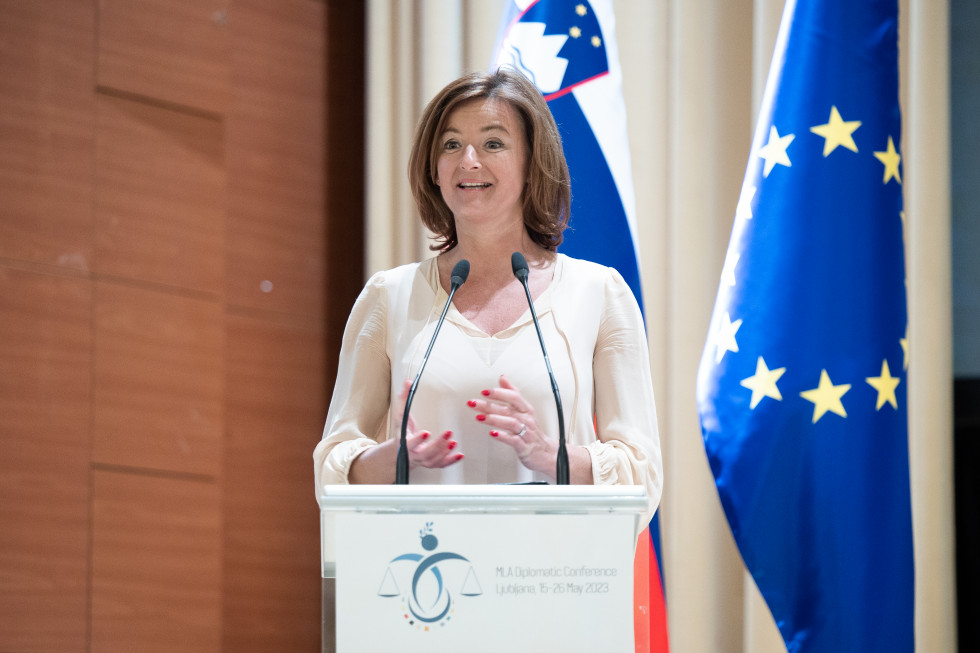The Ljubljana-Hague Convention adopted

Minister Tanja Fajon | Author STA
“The adoption of the Ljubljana-Hague Convention is a historic achievement in diplomacy and international law, representing a major step forward in our common fight against impunity and efforts to obtain justice for the victims of most serious crimes. With the Convention, we are translating the frequently uttered words “Never again” into concrete action. It will significantly enhance cooperation among all States Parties in the investigation and prosecution of the most serious international crimes and importantly contribute to the promotion of the rule of law and fight against impunity at the global level,” Minister Fajon said in her closing address on behalf of the members of the initiative’s core group (Slovenia, Argentina, Belgium, Mongolia, the Netherlands and Senegal). “With this historic adoption, we are sending a clear message to all future victims of heinous crimes: impunity will no longer persist. Justice will prevail,” added Minister Fajon.
The Minister of Justice, Dr Dominika Švarc Pipan, also addressed the participants, saying, “The adoption of the Convention shows that we stand united in our efforts to safeguard human dignity, fundamental rights and the rule of law, as well as our willingness to continue to work together to end impunity at the global level. The Ljubljana-Hague Convention is closing the legal gaps in the field of international legal aid and extradition that we had to struggle with in the past and is a common global framework for worldwide cooperation.”
In her address, Minister Fajon went on to thank, on behalf of Slovenia, the group of initiating countries for the decade of efforts and hard work that led to the adoption of the Convention, as well as all the supporter countries and other participants who contributed in any way to the adoption of the Convention and to the holding of the largest diplomatic conference in Slovenia's history.
The Ljubljana-Hague Convention, in 87 articles – in addition to the preamble, general and final provisions – sets out in seven chapters the central cooperation bodies, definitions and status of victims, witnesses, experts and other persons, international legal assistance and extradition procedures, transfer of convicted persons and dispute settlement procedures.
The initiative to adopt the Convention on International Cooperation in the Investigation and Prosecution of Genocide, Crimes against Humanity, War Crimes and Other International Crimes, now called the Ljubljana-Hague Convention, has garnered the support of 80 countries.

